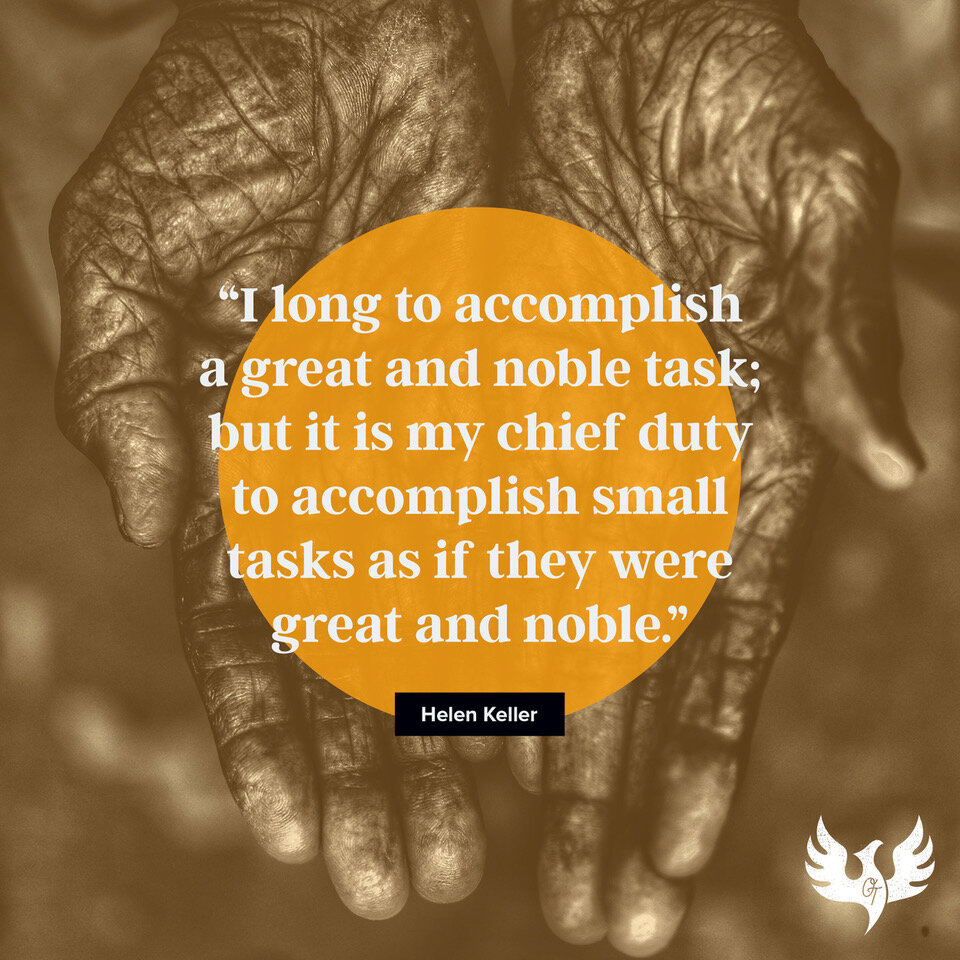Mark Twain, Helen Keller, and the River of Life…
/https://otpotential.com/blog/2015/8/25/occupational-therapy-quotes
Did you know that Mark Twain, author of Tom Sawyer, and Huckleberry Finn, was one of the first advocates for disability rights in America?
He was.
Mark Twain is a personal hero of mine. I read his books as a boy, and his skillful observations about people and willingness to get himself into trouble on behalf of disabled folks has inspired me in my adult life. If Mark Twain and I were sitting across from one another and looking into each others eyes, I’m pretty sure it would be clear to both of us who was a tougher, and smarter human being - Him!
( I’m not ashamed!)
One of the ways Mark Twain supported folks with disabilities was through his friendship with another bright light in our history, Helen Keller. Mark became friends with Helen, in 1895, when Helen was 14 years old.
If you don’t know Helen’s story, here’s a little introduction.
Helen Keller was born in Alabama, in 1880. When she was 19 months old, she contracted an infection, most likely meningitis or scarlet fever, and it left her blind, and deaf. What this meant to Helen was that although she had a young child’s memory of sounds, and sight, she could no longer see or hear, and she had not yet learned to speak. Helen was fortunate that she was able to receive training and support from a woman named Anne Sullivan, who became her companion. Since blindness and deafness had taken those senses from Helen, Anne creatively taught her to speak by writing in Helen’s hand, running water over her other hand, until Helen began to sense that she could use her mouth and tongue to make words. Listen to how Helen described this in her autobiography:
Helen’s “breakthrough in communication came the next month when she realized that the motions her teacher was making on the palm of her hand, while running cool water over her other hand, symbolized the idea of "water". Writing in her autobiography, The Story of My Life, Keller recalled the moment: "I stood still, my whole attention fixed upon the motions of her fingers. Suddenly I felt a misty consciousness as of something forgotten — a thrill of returning thought; and somehow the mystery of language was revealed to me. I knew then that w-a-t-e-r meant the wonderful cool something that was flowing over my hand. The living word awakened my soul, gave it light, hope, set it free!
https://daily.jstor.org/historys-odd-couple-mark-twain-helen-keller/
Mark Twain met Helen Keller at a meal given in her honor by a friend of hers. Twain was so taken by Helen’s courage and humanity that he began to travel with her and spoke to gatherings of people about their friendship and his admiration for her.
He also introduced Helen to Standard Oil multi-millionaire Henry Huttleston Rogers to finance her education at Harvard. Mark referred to her as the 8th wonder of the world! Helen became the first blind and deaf person to receive a Bachelors degree from Harvard university.
Throughout her life, Helen continued to develop her sensitivity in touch, sensing the vibration of music, and conversing with others by lightly touching their mouth.
She also remained friends with Twain for the rest of his life. In his last year, Helen spent three days with Twain, talking and walking around his Connecticut home. Of those three days she said;
“I have been in Eden three days and I saw a King. I knew he was a King the minute I touched him though I had never touched a King before.”
Helen Later wrote, "He treated me like a competent human being. That’s why I loved him.”
To me, Helen Keller’s life is a beautiful example of how ‘The River of Life flows through us, except when it doesn’t”. When Helen was born she had a fully functioning brain, as far as we know. After the infection at nineteen months, light and sound no longer could be perceived. She lost so much of what most of us can take for granted, yet with the help of her friend Anne Sullivan ( also known as The Miracle Worker) she was able to bring clarifying words, sensitivity, awareness, kindness and compassion to herself and others.
Both Mark Twain and Helen Keller can be seen as models for those of us who are parents of special
needs children. Like Mark, we can all be strong advocates for every child with a disability, beginning with our own, and like Helen, we can all ripen our sensitivity, feelings, and ability to share our Family Grit with the world.
(Mark Twain dancing with Helen Keller, 1909)
Questions:
How’s your own River of Life doing? Are you getting adequate sleep? Regularly doing a form of exercise you enjoy?
If you could sit down with Mark Twain or Helen Keller, what would you want to learn from them in a conversation?


